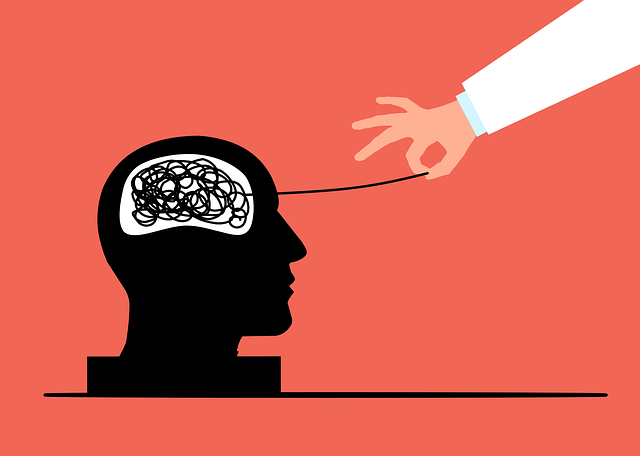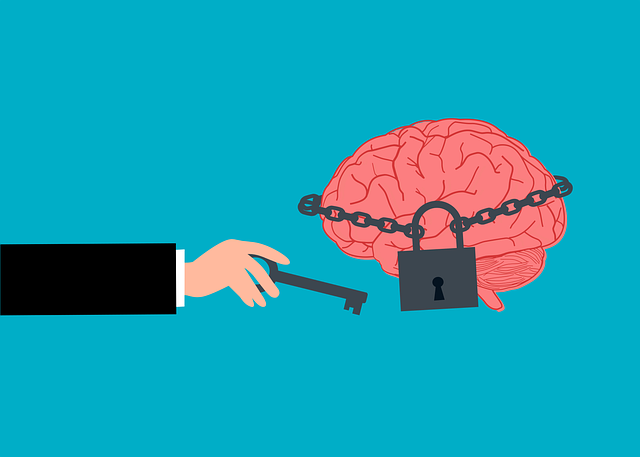Denver Veterans Therapy tackles the significant barrier of stigma surrounding mental illness among veterans, impacting their access to care and recovery. They advocate for education, empathy, and policy change through workshops, awareness campaigns, and evidence-based practices. By integrating mindfulness, stress management, and cultural competency training, they create supportive environments that break down barriers. Community engagement and effective communication strategies empower individuals to discuss mental health openly, challenging stereotypes and promoting a more inclusive society where holistic well-being is prioritized.
Mental illness stigma remains a significant barrier to optimal mental health and well-being. This article explores targeted efforts to reduce this pervasive social issue, focusing on education as a powerful tool for change. We delve into the impactful work of organizations like Denver Veterans Therapy, highlighting their focused approach to support. Additionally, we discuss community engagement strategies and effective communication tactics that are fostering understanding and breaking down stigma.
By examining these initiatives, we aim to illuminate paths towards a more inclusive society where mental illness is met with compassion and empathy.
- Understanding Stigma and Its Impact on Mental Health
- The Role of Education in Breaking Down Stigma
- Denver Veterans Therapy: A Focused Approach to Support
- Community Engagement and Advocacy for Change
- Effective Communication Strategies to Reduce Stigma
Understanding Stigma and Its Impact on Mental Health

Stigma surrounding mental illness is a significant barrier to seeking help and recovery. It often manifests as negative attitudes, beliefs, and stereotypes that create a culture of fear and shame around mental health issues. This can have profound effects on individuals, leading to isolation, reduced access to care, and even suicidal ideation. At Denver Veterans Therapy, we understand the devastating impact stigma has on veterans’ mental well-being. Many veterans face unique challenges upon returning home, and the added weight of societal perceptions can exacerbate existing conditions or prevent them from recognizing and addressing their psychological needs.
Reducing stigma is crucial for fostering an environment where individuals feel empowered to discuss their struggles openly and pursue effective emotional healing processes. This involves education, advocacy, and the promotion of compassionate understanding. Through initiatives like stress management workshops and risk management planning for mental health professionals, organizations play a vital role in dismantling these harmful perceptions. By challenging outdated ideas and providing support, we can ensure that those dealing with mental illness receive the empathy and care they deserve, ultimately enhancing their journey towards recovery and well-being.
The Role of Education in Breaking Down Stigma

Education plays a pivotal role in breaking down the stigma surrounding mental illness, particularly through initiatives like those offered by Denver Veterans Therapy. By integrating mindfulness meditation and stress management techniques into educational curricula, schools can foster an environment that normalizes open conversations about mental health. This approach equips students with the tools to recognize signs of depression prevention in themselves and others, reducing the likelihood of stigmatization and encouraging early intervention.
Moreover, education serves as a powerful means to dispel myths and misconceptions that perpetuate stigma. Programs focused on raising awareness about various mental health conditions can help individuals understand that these are common challenges that anyone can face, just as physical ailments are. This shift in perspective encourages empathy and support, creating a more inclusive society where those struggling with their mental health feel understood and welcomed, reinforcing efforts in depression prevention and promoting holistic well-being.
Denver Veterans Therapy: A Focused Approach to Support

Denver Veterans Therapy takes a targeted approach to addressing mental health issues within the veteran community. This specialized service recognizes the unique challenges faced by veterans, often involving trauma-related conditions and transitions from military to civilian life. By focusing on mood management and emotional regulation techniques tailored to their needs, Denver Veterans Therapy offers a supportive environment for healing.
The program incorporates evidence-based practices alongside cultural competency training for healthcare providers, ensuring a deeper understanding of the veteran experience. This comprehensive approach aims to break down barriers and reduce stigma, fostering an inclusive space where veterans can openly discuss their struggles and receive the necessary care for improved mental well-being.
Community Engagement and Advocacy for Change

In the fight against mental illness stigma, community engagement plays a pivotal role. Organizations like Denver Veterans Therapy are at the forefront, fostering open conversations to demystify mental health challenges. They organize workshops, seminars, and public awareness campaigns that educate individuals on recognizing symptoms, promoting empathy, and encouraging early intervention. By involving communities in advocacy efforts, these initiatives spark change at both individual and societal levels.
Through active engagement with local governments and policymakers, Denver Veterans Therapy contributes to Mental Health Policy Analysis and Advocacy. This collaborative approach ensures that legislative decisions reflect the needs of those affected by mental illness. Moreover, Public Awareness Campaigns Development is a strategic tool employed to reach diverse audiences, challenging outdated stereotypes and norms associated with mental health struggles. Such efforts are crucial in creating an inclusive environment where individuals can seek support without fear of judgment.
Effective Communication Strategies to Reduce Stigma

Effective communication plays a pivotal role in reducing the stigma surrounding mental illness, especially when tailored to resonate with diverse audiences. Denver Veterans Therapy, for instance, has pioneered efforts by employing strategies that foster understanding and empathy. These include sharing personal stories of recovery, which humanizes mental health struggles and breaks down stereotypes. By encouraging open dialogue, they create safe spaces where individuals feel empowered to share their experiences without fear of judgment.
Moreover, integrating evidence-based practices like Mindfulness Meditation into therapy sessions has shown significant promise. This approach not only promotes self-esteem improvement but also equips individuals with coping mechanisms to manage symptoms effectively. Mental Health Policy Analysis and Advocacy also contribute by amplifying the voices of those affected, shaping public discourse, and driving systemic changes that challenge stigmatizing narratives. These comprehensive communication strategies are key to fostering a more compassionate society where mental health is treated with the same empathy as physical well-being.
Mental illness stigma is a complex issue, but through education, community engagement, and effective communication strategies, we can make significant progress. Organizations like Denver Veterans Therapy play a vital role in providing focused support and resources to those affected. By fostering open conversations and advocating for change, we can create a more inclusive society that reduces the impact of stigma on mental health.











